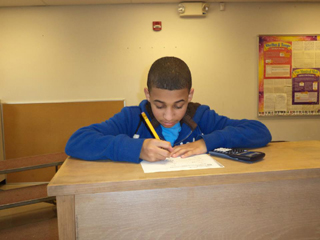 In the CNN.com article "Preventing tween behavior problems," Linda Rogers writes about breaking the rules as a young teen herself, worrying over her daughter's ability to resist temptation and adds, "It also doesn't help calm a parent's fears when every stat about teen behavior is scarier than the last…"
In the CNN.com article "Preventing tween behavior problems," Linda Rogers writes about breaking the rules as a young teen herself, worrying over her daughter's ability to resist temptation and adds, "It also doesn't help calm a parent's fears when every stat about teen behavior is scarier than the last…"
The article quotes experts that say that you need to build a good relationship with your child before the teen years start and expect that he or she will want to push some limits. While you cannot ensure there won’t be conflict as your child becomes a tween and then a teen, you can "maximize the chances that your soon-to-be teen won't get into the really bad stuff."
"Raise your expectations"
This not only gives your child more to strive for; it can also change the way you interact with your child. If you feel your child is bound for trouble, you may discipline that child less without even realizing it. Plus, if you send the message (directly or indirectly) that all teens rebel or drink or exhibit some other unacceptable behavior, your child may be less likely to resist when they feel pressure to join the crowd.
"Don't blame it all on hormones"
One expert says, "attributing all irritating behavior to hormones may be a cop-out -- the effects are small for most kids, and there are often more important causes" and that parents should take the time to find out what is going on.
"Find the right balance"
It doesn't help to be too strict or too permissive. Research has found that "Teens who enjoyed a warm relationship with their parents but were held accountable for their actions" were at the lowest risk for engaging in risky behaviors.






